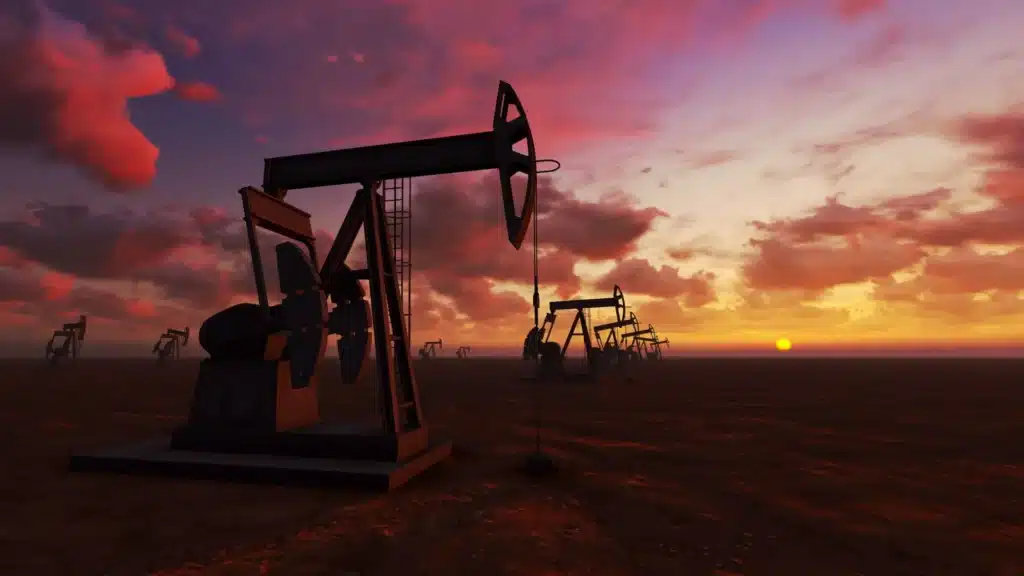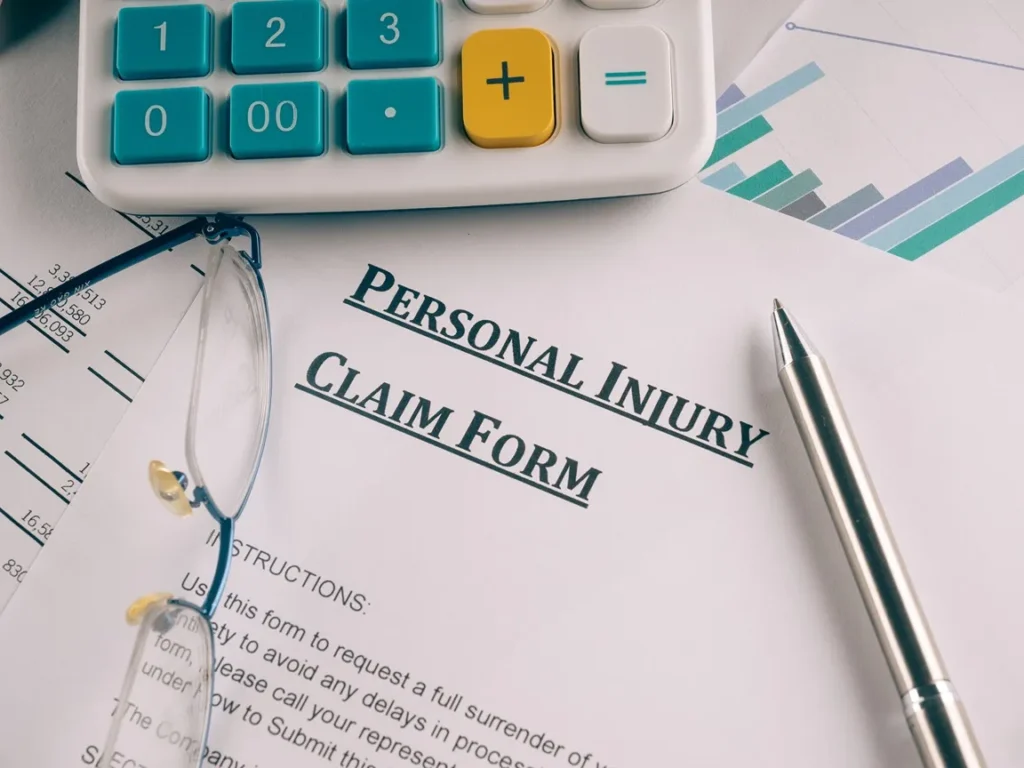
For personalized legal support, call Cesar Ornelas Injury Law at 210-957-2103 to schedule a free consultation. Our dedicated team is here to fight for your rights and ensure you receive the compensation you need to cover medical expenses and lost wages. Don’t hesitate to reach out today.
3 Immediate Steps Following an Oil Refinery Injury
The consequences of oilfield accidents can be significantly influenced by the immediate actions taken when oilfield accidents occur. In the chaos after a plant or refinery accident, it’s easy to overlook these steps, but, for injured workers, prioritizing these steps is essential.
1. Seek Immediate Medical Attention
Your health is the highest priority following an industrial accident. Even seemingly minor injuries warrant immediate medical attention. Severe injuries can sometimes present with delayed symptoms, and toxic chemicals involved in gas operations can cause long-term health effects if not addressed promptly.
Documented medical treatment is invaluable not only for your health but also as important evidence for any subsequent legal claims for workers’ compensation or personal injury. Following the doctor’s advice and adhering to follow-up treatments can prevent further complications and strengthen your injury claim.
2. Report the Incident Promptly

To start a claim for an oilfield injury, you must inform your employer about the accident and complete an incident report. This report should include details of the accident, injuries sustained, and any immediate actions taken. Ensuring that this step is done correctly and promptly can significantly impact the success of your compensation claim.
3. Document Everything
After an industrial accident, thorough documentation is critical. Begin by recording your personal recollections of the event and gathering contact information from any witnesses. This information is essential for pursuing compensation claims.
Preserve all physical evidence from the incident, including clothing and any items that were damaged. Collecting and organizing all documents, photographs, and reports related to the accident will provide concrete proof of the circumstances and impact of the injury, which is fundamental when seeking compensation.
Understanding Your Rights as an Injured Worker

In addition to federal OSHA regulations, some states operate their own OSHA-approved safety and health programs, which must be at least as effective as federal standards. Employers may also follow guidance from agencies like the American National Standards Institute and the National Fire Protection Association to enhance worker safety. Knowing these regulations can help you understand the protections in place and your right to a safe working environment.
Workers need to be aware of their rights under these regulations, which include:
- The right to report unsafe working conditions without fear of retaliation.
- The right to receive proper training on workplace hazards and safety protocols.
- The right to access information about workplace injuries and illnesses.
- The right to participate in OSHA inspections and speak privately with the inspector.
- The right to file complaints with OSHA if they believe their employer is not complying with safety standards.
On the other hand, employers are obligated to:
- Provide necessary personal protective equipment (PPE).
- Ensure that all safety devices and safeguards are in place and functioning correctly.
- Conduct regular safety audits and drills to prepare for emergencies.
- Maintain accurate records of workplace injuries and illnesses.
- Implement and enforce a comprehensive safety and health program.
By staying informed about these regulations and actively participating in workplace safety programs, workers can contribute to a safer and healthier working environment, ultimately reducing the risk of accidents and injuries in the oil and gas industry. If any of these rights are violated, workers have the opportunity to pursue compensation through legal channels. This can include filing a complaint with OSHA or initiating a personal injury lawsuit to seek damages for any harm suffered due to the employer’s negligence or failure to comply with safety standards.
Workers’ Compensation Claims
Workers’ compensation claims provide financial benefits for on-the-job injuries without the necessity to prove fault. These claims can cover medical treatments and a portion of lost wages, offering vital support for injured workers. Workers’ compensation insurance ensures that injury costs and some lost wages are covered, though the benefits may be limited and only provide partial coverage of lost income.
To file for workers’ compensation, you must inform your employer about the injury within a specified timeframe and provide proof that the injury is work-related. For example, in Texas, the limit to file for workers’ compensation after sustaining an injury is two years. Filing for workers’ compensation allows you to obtain financial benefits for on-the-job injuries without proving fault, which can cover the cost of treatments such as doctor visits, surgeries, medications, and rehabilitation services.
A successful workers’ compensation claim hinges on a clear understanding of the eligibility criteria and filing process. Having an employment law attorney from Cesar Ornelas Injury Law can be incredibly influential and helpful during this process. An experienced attorney from our firm can provide valuable guidance, help with the legal system, and ensure that all necessary documentation is properly completed and submitted. We can also advocate on your behalf, negotiate with insurance companies, and fight for the maximum compensation you deserve, significantly increasing the chances of a successful claim.
Eligibility Criteria for Workers’ Compensation
Eligibility for workers’ compensation in the oil and gas industry involves a coordinated approach that combines claims professionals with nurse case managers to ensure services are always available. Programs and provisions may include access to medical professionals, return-to-work initiatives, and strategies to contain medical costs, enhancing the support for injured workers.
Understanding master service agreements and contractual risk transfer is a crucial aspect of workers’ compensation coverage in the oil and gas industry. These factors significantly affect eligibility and claims processing, ensuring that injured workers receive the benefits they are entitled to. Our experienced employment lawyers at Cesar Ornelas Injury Law can help determine your eligibility by thoroughly reviewing your case, understanding the specific circumstances of your injury, and managing the legal requirements. We can provide personalized advice and representation to ensure you meet all necessary criteria and maximize your chances of a successful claim.
Filing the Claim
To file a workers’ compensation claim after an oil refinery accident, consider following these steps:
-
- Collect Relevant Information:
- Gather details about the incident, including witness information and photographic evidence.
- Ensure all incident specifics are documented accurately.
- Consult a Personal Injury Attorney:
- Seek advice from a personal injury attorney to help manage the claims process.
- An attorney can assist in ensuring all necessary documentation is completed correctly.
- Demonstrate the Injury is Work-Related:
- Provide proof that the injury occurred as a direct result of employment activities.
- This may involve presenting evidence such as accident reports, witness statements, and medical records.
- Keep Detailed Medical Records:
- Maintain a comprehensive record of all medical treatments and expenses related to the injury.
- Include doctor visits, hospital stays, medications, and any rehabilitation services.
- A detailed journal of symptoms and the injury’s impact on daily life can strengthen your claim.
- Prepare for Potential Disputes:
- Be aware that your employer or their insurance company may dispute your claim.
- Having an experienced attorney can be essential in gathering additional evidence and representing your interests in hearings or appeals.
- Adhere to Filing Deadlines:
- Be mindful of the deadlines for filing a workers’ compensation claim in your state.
- Missing these deadlines can result in losing your right to compensation.
- Your employment law attorney can help you stay on track with all necessary filings and ensure that your claim is submitted promptly and accurately.
- Collect Relevant Information:
By following these steps, you can increase the likelihood of a successful workers’ compensation claim, ensuring you receive the benefits you are entitled to, which can include medical expenses, a portion of lost wages, and potentially vocational rehabilitation if you’re unable to return to your previous job.
Exploring Personal Injury Lawsuits
If the oil rig operator lacks workers’ compensation insurance, the injured worker can initiate a personal injury lawsuit. For a personal injury lawsuit, the injured worker must:
- File a notice of claim within 90 days of the accident
- Include details about the accident in the notice of claim
- Include a compensation demand in the notice of claim
Personal injury lawsuits offer a broader scope of compensation compared to workers’ compensation claims. While workers’ compensation provides benefits without establishing fault, personal injury cases require the victim to prove that their injury was caused by someone else’s negligence. This broader compensation can include:
- Medical expenses
- Lost wages
- Pain and suffering
- Emotional distress
- Loss of enjoyment of life
These types of compensation are not covered by workers’ compensation benefits.
Even if a personal injury case is unsuccessful, workers can retain the workers’ compensation benefits they have been paid. Personal injury lawsuits often involve cases with multiple responsible parties, potentially leading to a broader spectrum of compensation compared to workers’ compensation claims.
When to Consider a Personal Injury Claim
Consider a personal injury claim when third-party negligence is involved, and broader compensation is needed. Personal injury lawsuits may offer compensation for economic losses, non-economic damages like pain and suffering, and sometimes punitive damages. In cases involving a fatality, a wrongful death claim might be applicable.
In scenarios where workers are injured due to a contractor’s negligence, they may pursue a third-party lawsuit in addition to workers’ compensation. Various parties, such as negligent trucking companies or maintenance contractors, can be held liable in personal injury cases, providing additional avenues for compensation.
Identifying Liable Parties with Legal Counsel
An experienced employment law attorney plays a pivotal role in maximizing compensation by carefully identifying all parties responsible for an oilfield accident. Injured oilfield workers may significantly benefit from the counsel of an attorney when filing a third-party claim to seek additional financial recovery if a third party’s negligence contributed to their injuries.
An attorney’s thorough investigation often uncovers various liable entities, including other companies contracting at the refinery, manufacturers of refining equipment, or trucking companies that have not adhered to federal regulations. An attorney can help establish a claim against an employer for failing to address or alleviate a known oilfield hazard. Their knowledge and strategic approach ensure that all potential sources of compensation are explored, providing the injured worker with the best possible chance of a successful claim.
In the context of oil refinery accidents, third-party negligence can involve various entities whose actions or inactions contribute to an injury. Examples include:
- Equipment Manufacturers:
- Defective or poorly designed equipment that leads to malfunctions or accidents.
- Failure to provide adequate warnings or instructions for safe use.
- Contractors and Subcontractors:
- Negligence in performing their duties, such as improper maintenance or unsafe work practices.
- Failure to adhere to safety protocols and regulations.
Trucking Companies:
- Unsafe transportation practices, such as overloading vehicles or failing to secure loads properly.
- Neglecting regular maintenance, leading to vehicle malfunctions.
- Suppliers of Hazardous Materials:
- Providing incorrect or insufficient information about the handling and storage of hazardous materials.
- Supplying contaminated or substandard materials that pose safety risks.
- Inspection and Safety Compliance Firms:
- Failing to identify and report safety hazards during inspections.
- Providing inaccurate or incomplete safety assessments.
The Legal Process
Prompt consultation with an industrial accident attorney following an accident is important for safeguarding your rights to financial compensation. Industrial accident cases are governed by complex laws, and an attorney’s guidance is essential to:
- Handle the Litigation Process Effectively
- Gather Evidence to Support Your Claim
- Determine Liability and Identify Responsible Parties
- Negotiate with Insurance Companies
- Ensure You Receive Fair Compensation for Your Injuries and Damages
If a personal injury lawsuit results in a win or settlement, workers’ compensation insurance benefits that the worker received must be reimbursed. Post-accident communications should be managed carefully, as any admission of negligence could impact the compensation you are entitled to from the lawsuit.
Securing Maximum Compensation for Your Injuries

Properly documenting all damages, both economic and non-economic, is essential to ensure full compensation for losses incurred from an oilfield accident. Influential actions you can take to maximize your compensation include:
- Document all economic damages, such as medical bills and lost wages.
- Document all non-economic damages, such as pain and suffering.
- In cases of gross negligence, consider pursuing punitive damages, which can significantly increase the total compensation received.
By following these steps, you can strengthen your case and increase your chances of receiving the compensation you deserve.
Negotiating Settlement Offers
Settlement negotiations in personal injury cases demand both skill and thorough preparation. Accepting a low offer can prevent obtaining further compensation, so it is important to keep detailed records of all expenses related to the accident, such as medical bills and lost income documentation.
Maintaining a pain journal to document daily feelings and limitations can provide compelling evidence for non-financial losses in a personal injury settlement. Having a clear negotiation strategy, including desired compensation and minimum acceptable settlement, is necessary for effective settlement discussions.
An experienced attorney is essential in this process, as they possess the skill and experience to evaluate the true value of your claim, negotiate assertively with insurance companies, and ensure that you do not settle for less than you deserve.
Financial Support During Recovery
Financial support during recovery may include temporary or permanent disability benefits, vocational rehabilitation, and structured settlements. Injured oilfield workers may be eligible for temporary disability benefits, providing a portion of their average wages while they recover.
Workers with lasting impairments may qualify for permanent disability benefits, calculated based on the severity of the disability and its impact on earning potential. Vocational rehabilitation benefits support injured workers in resuming their former roles or adapting to new roles per their abilities.
Long-term Implications of Serious Injuries
The long-term effects of serious injuries like traumatic brain injuries (TBI) and spinal cord injuries can be profound. TBIs can manifest as neurobehavioral sequelae, including cognitive impairments and changes in social behavior. Patients with a history of TBI are at an elevated risk for developing neurodegenerative diseases like Alzheimer’s.
Spinal cord injuries can trigger cell death pathways that result in neuron loss and subsequent impairment of neurological functions. It is necessary to factor in these long-term implications, including future financial losses such as ongoing medical costs and diminished earning potential, during the claim negotiation process.
[Related: Traumatic Brain Injury: Causes and Symptoms]
Why Partnering with Our Skilled Attorneys Matters

- Thorough Investigation: We conduct detailed investigations to identify all responsible parties and gather the necessary evidence to support your claim.
- Claims Management: We handle the entire claims process, ensuring all documentation is accurately completed and submitted on time.
- Legal Representation: We represent your interests in negotiations and court proceedings, advocating for the maximum compensation you are entitled to.
- Comprehensive Support: We provide ongoing support and guidance throughout your recovery, helping you understand the legal system and your rights.
By partnering with us, you can focus on your recovery while we work diligently to achieve the most favorable result for your case.
No Win, No Fee Structure
Our firm operates on a contingency fee basis, which means that we charge no fees unless we win or settle your case. This payment structure provides financial security to our clients, allowing them to focus on their recovery without the added stress of legal expenses. It also aligns our interests with those of our clients, ensuring that we are fully invested in achieving the best possible outcome for every case.
Contact Us for Assistance with Your Oil Refinery Accident
If you or a loved one has been injured in an oil refinery accident, don’t hesitate to reach out for the help you need. At Cesar Ornelas Injury Law, we are committed to fighting for your rights and ensuring you receive the compensation you deserve. Call us today at 210-957-2103 to schedule your free consultation and let us provide the dedicated and personalized representation you need. Your well-being and peace of mind are our utmost priorities.
[Related: Is It Dangerous to Work on Oil Refineries?]
Frequently Asked Questions
What should I do if my employer refuses to file a workers’ compensation claim?
If your employer refuses to file a workers’ compensation claim, you should report the incident to your state’s workers’ compensation board or agency. Document all communications with your employer and gather any evidence related to the accident and your injury. Consulting with a personal injury attorney can also help you understand your rights and the next steps to ensure your claim is properly filed.
Can I still receive compensation if I was partially at fault for the accident?
Yes, you can still receive compensation even if you were partially at fault for the accident. Workers’ compensation is a no-fault system, meaning you do not have to prove that your employer was at fault to receive benefits. The amount of compensation you receive might be reduced based on your level of fault.
Can I choose my own doctor for treatment under workers’ compensation?
In some states, you have the right to choose your own doctor for treatment under workers’ compensation, while in others, you may be required to see a doctor from a list provided by your employer or the insurance company. It’s important to understand your state’s rules regarding medical treatment under workers’ compensation. Consulting with an attorney can help clarify your rights and ensure you receive appropriate medical care.
What should I do if my workers’ compensation claim is denied?
If your workers’ compensation claim is denied, you have the right to appeal the decision. Start by reviewing the denial letter to understand the reasons for the denial. Gather additional evidence, such as medical records and witness statements, to support your appeal, and consider seeking legal assistance to strengthen your case and navigate the appeals process.
Are there any time limits for filing a personal injury lawsuit after an oil refinery accident?
Yes, there are time limits, known as statutes of limitations, for filing a personal injury lawsuit after an oil refinery accident. These time limits vary by state but generally range from one to three years from the date of the accident. It’s crucial to act promptly and consult with a personal injury attorney to ensure your lawsuit is filed within the applicable timeframe.




 Trucking Companies
Trucking Companies


